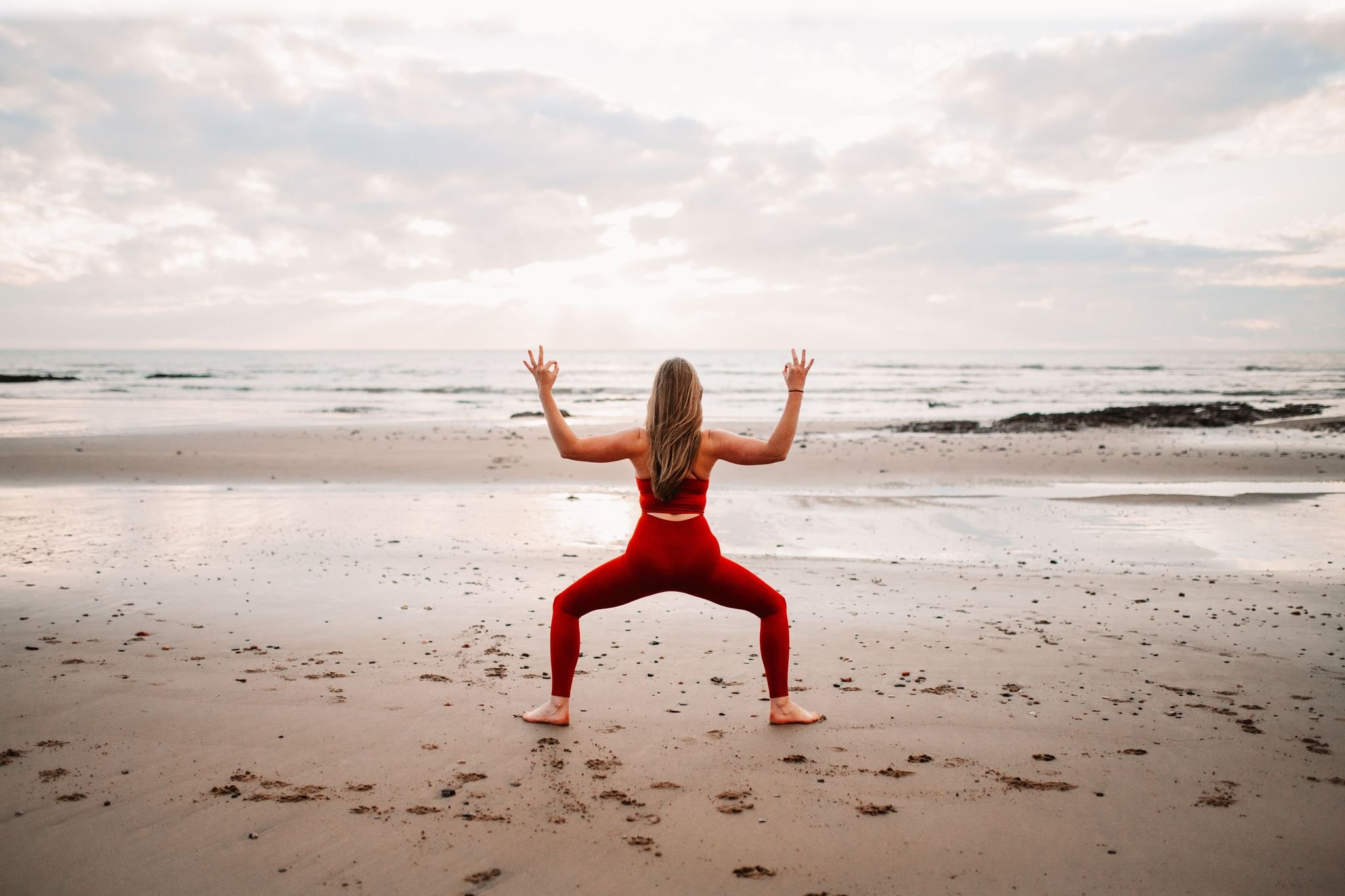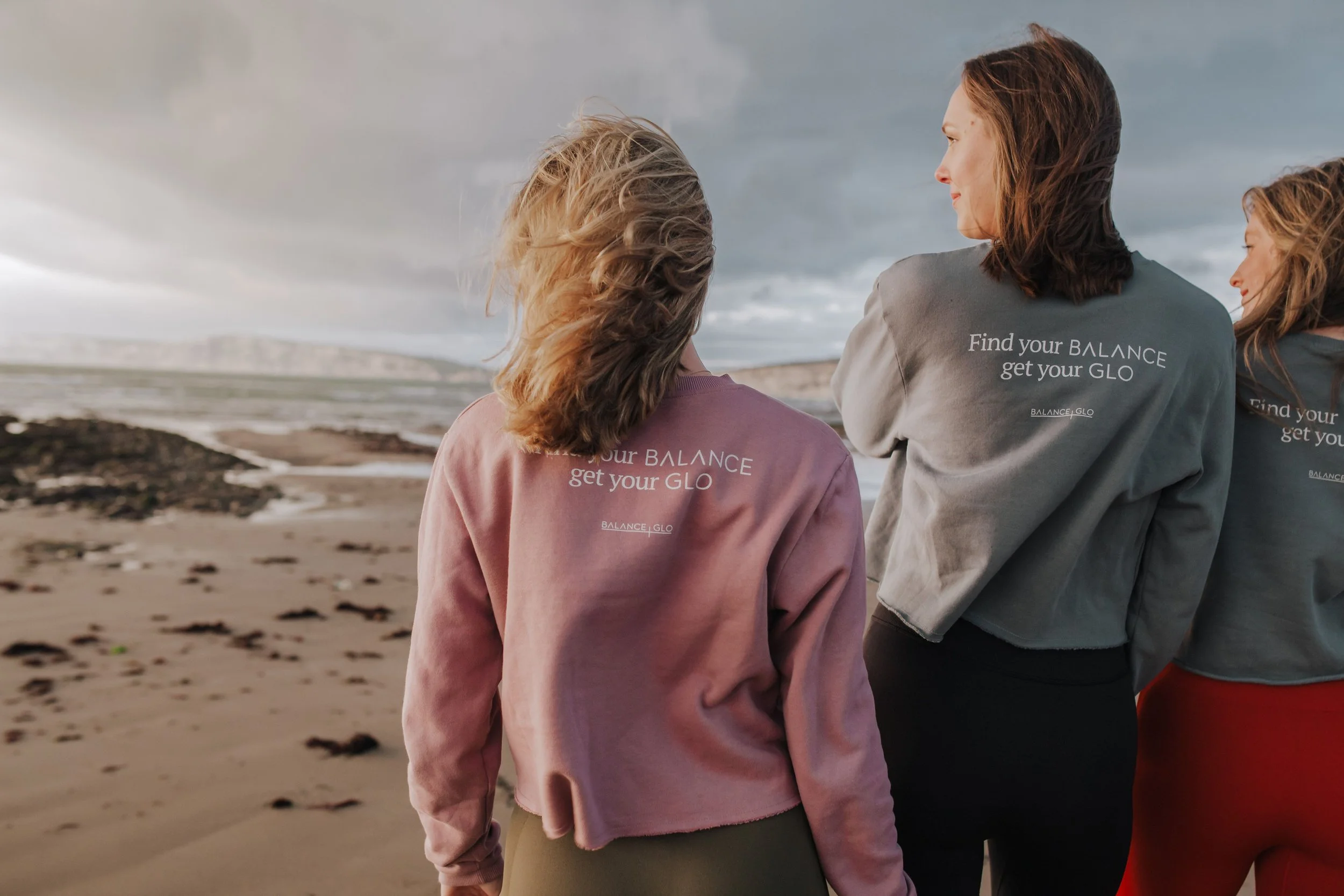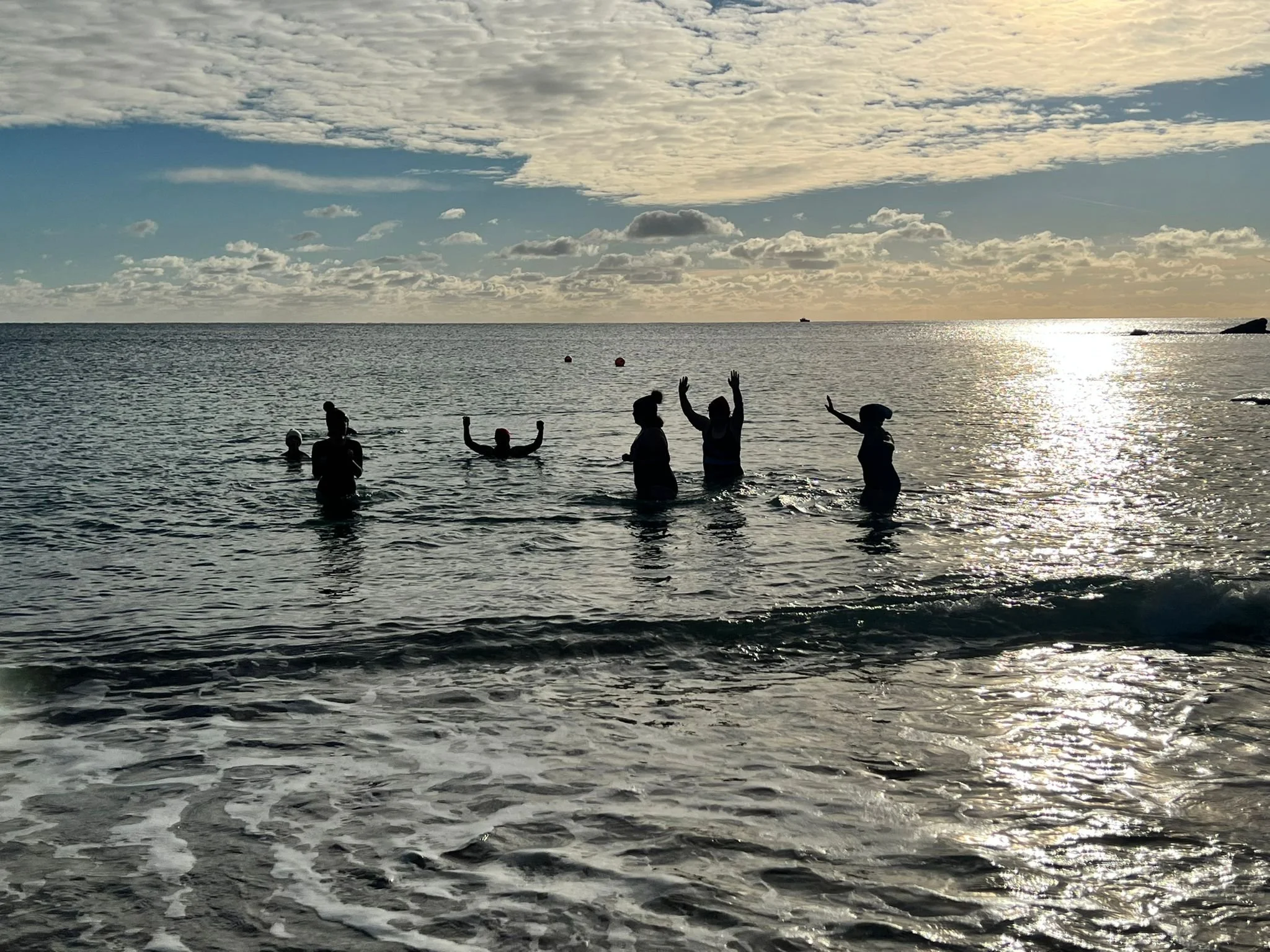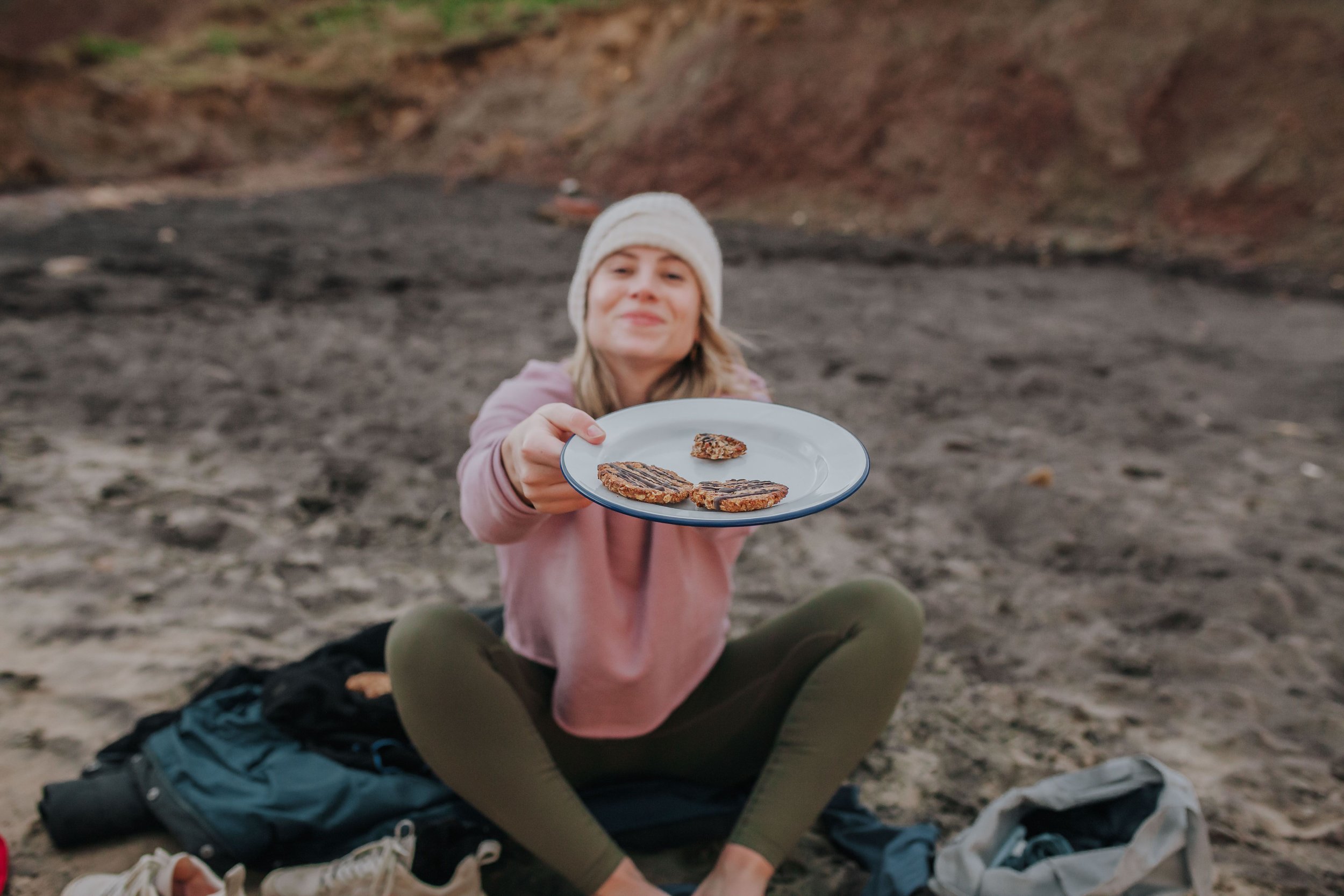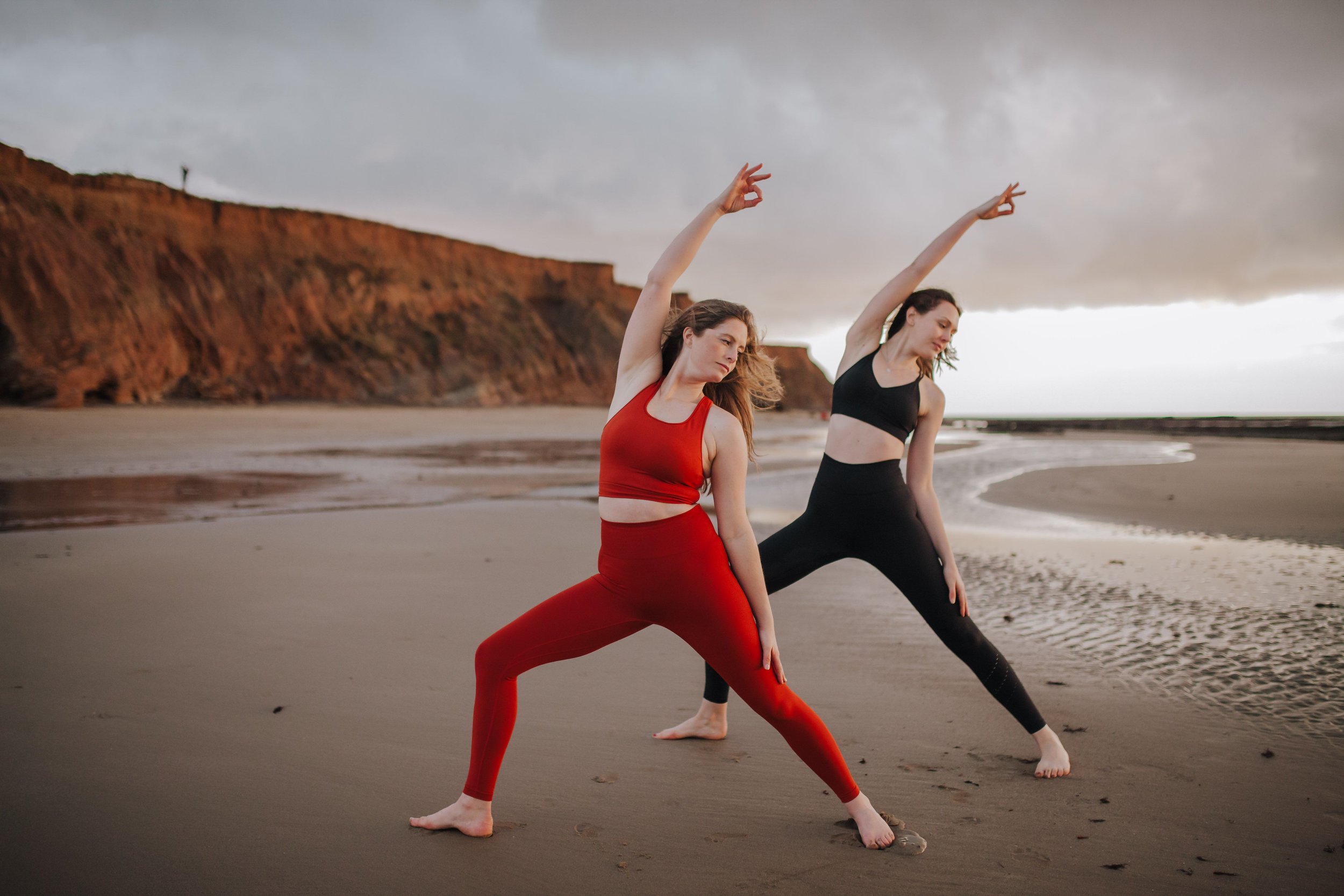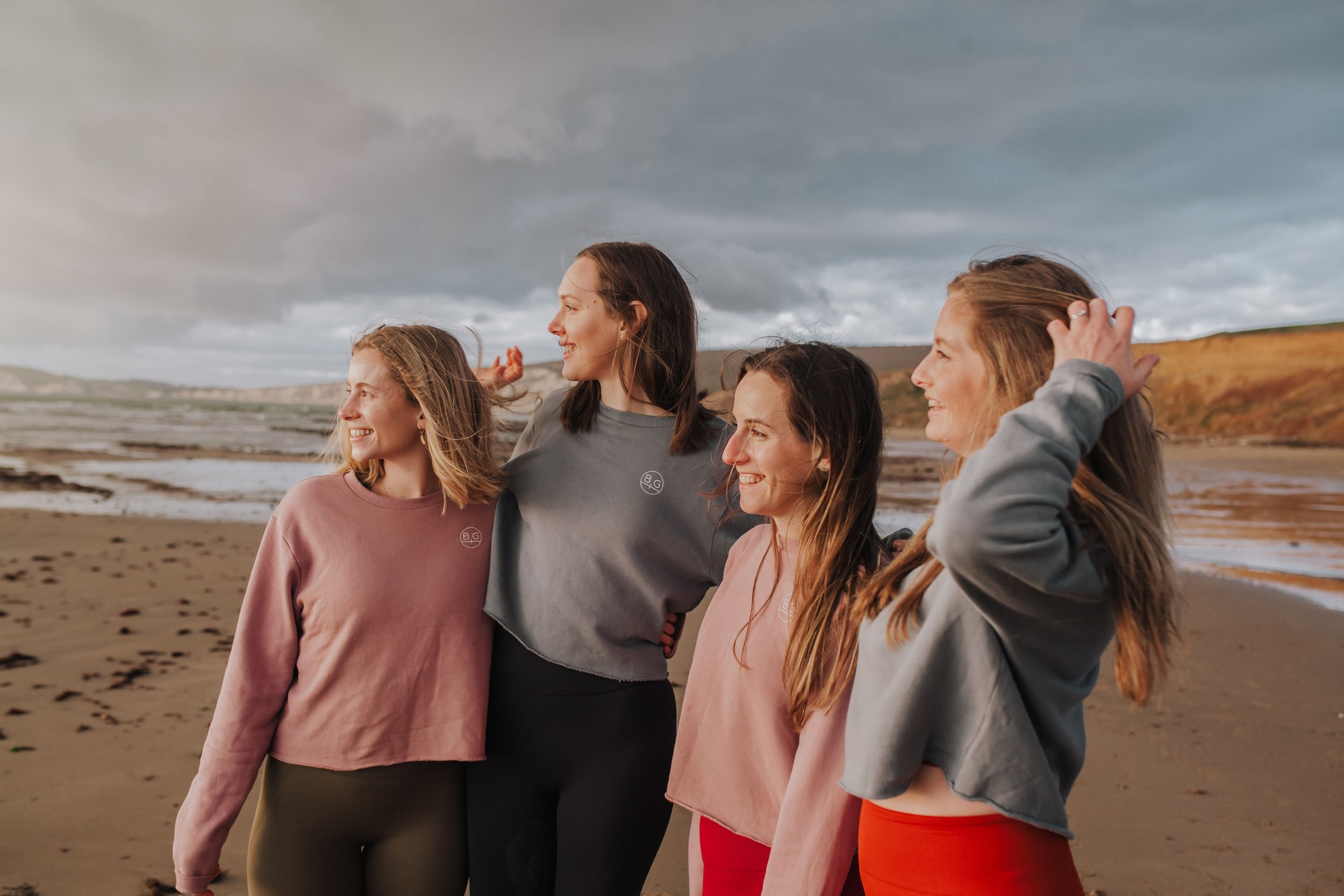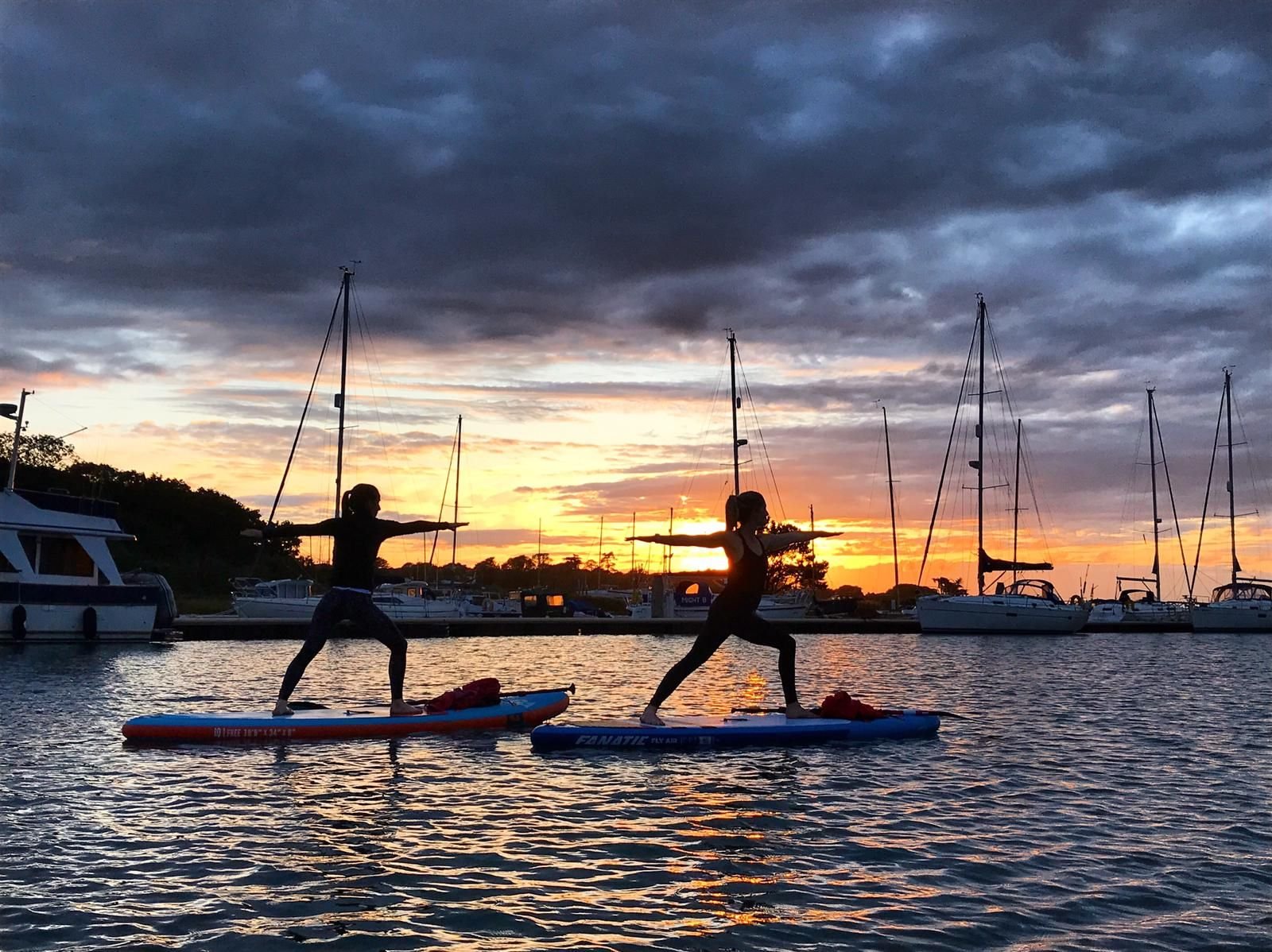3 WAYS TO REWILD YOURSELF
Jenny Stewart on Compton Beach, Isle of Wight
What is rewilding?
Rewild [re-wayld]
To introduce (animal or plants) to their original habitat or a similar one
To return (land) to a more natural state
In the last couples of years the process of rewilding has been a popular one among those endeavouring to support small local ecosystems. Industrialisation and modern agriculture has stripped vast ecosystems of their diversity and sustainability. Our friends over in Bodmin Moor at Cabilla Cornwall (where we are holding a retreat in May), for example, are working to enhance their natural environment by introducing exciting ecosystem engineers — such as beavers, wild boar, and pine martens — while respectfully supporting the wild growth of fauna and flora.
The human role is merely that of guardian for the future of the naturally evolving landscape. It is nature itself that enables a healthy biodiversity to be kickstarted and sustained by nurturing the beneficial relationships between creature and living organisms.
What is human rewilding?
Rewilding yourself is the same concept. We live in a world of extreme technological advances that didn’t exist to our ancient ancestors and while this has opened up a whole realm of discovery it has disconnected us from our history as mammals on earth. It is a fairly common experience in major cities around the world to wake before the sun, work from home or an office until after sunset and go to bed without even seeing daylight.
To rewild yourself is to return to your natural state. To interact with the world outside in order to support our physical, mental, and spiritual wellbeing. Read on to find out how you can rewild yourself each day.
3 ways to re-wild yourself:
SEE THE LIGHT
Exposure to daylight, in particular, morning light is a great way to regulate the hormones serotonin and melatonin. Exposure to daylight suppresses the secretion of melatonin (a sleep-inducing hormone) and so leaves you feeling more awake. Experiencing morning light therefore has a positive impact on your mood.
Dr. Emmanuel During, clinical assistant professor of psychiatry and behavioural sciences at the Stanford Centre for Sleep Sciences and Medicine, says the pathways in the brain that control sleep and mood overlap up to 90%. When light tells the brain to shut down melatonin production, the brain also releases more wake-promoting neurotransmitters like dopamine, norepinephrine, and histamine, which can make people feel good.
2. GET CHILLY
According to the infamous dutchman, Wim Hof, Cold Water Immersion (CWI) “over time, our bodies have become accustomed to modern-day comforts, and are therefore no longer used to cold conditions. Getting your body ready to cope with cold conditions can lead to some serious health improvements, such as stress reduction, more energetic, and better sleep.”
Scientific research has not yet caught up with the many claims of health improvements due to CWI yet it is undeniable that the buzz after a cold dunk makes you feel alive. Your whole body is shocked by the uncomfortable temperature so that it is pretty impossible to think of anything else. The warm glow after you’ve wrapped yourself up (maybe in the Dry Robe you got for Christmas) is a wonderfully peaceful feeling.
Many groups such as charity organisation, Chilly Dippers, speak about the positive effect that Cold Water Immersion has on mental health problems such as anxiety and depression.
Not sure where to start? The breath is the key. Take a least 5 deep breaths to calm the nervous system before you get in. Then continue this slow breathing technique as you reach the water. It really is mind over matter. Take it slow and start with a minute then gradually build it up.
Our guests taking a winter dip in November on the Isle of Wight. Check out 2022 retreats.
3. VARY YOUR MOVEMENT
Back when we were hunter-gatherers we moved our bodies each day in varied ways. Squatting, lifting heavy objects, walking, and reaching used to be common movements in daily life. So varying your movement practice to include lots of different types of movement is not only great for your brain but also your body.
Why not combine this with getting outside into nature. Try hiking, running, swimming, and stretching out in the open air. The synergistic combination of exercise and exposure to nature not only has the potential to produce more endorphins, but research shows that it can help us to create a much healthier relationship with the concept of exercise.
RETREAT WITH US
Want to rewild yourself with Balance + Glo? We have retreats in 2022 on the Isle of Wight in April and Cornwall in May. In our retreats we curate a bespoke holistic schedule tethered to this idea of coming back to yourself. It is a weekend for you to refresh and renew, find new movement patterns, explore the beautiful locations and eat nourishing plant based food.
We offer payment plans with our retreats. To book a spot or enquire further email hello@balanceandglo.com.

